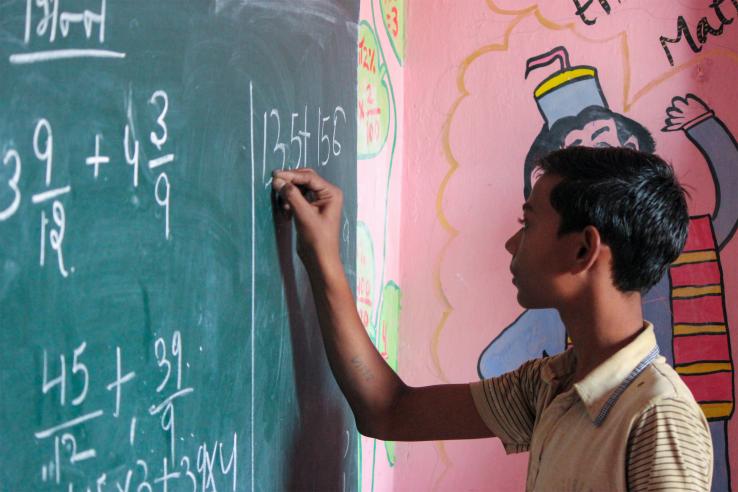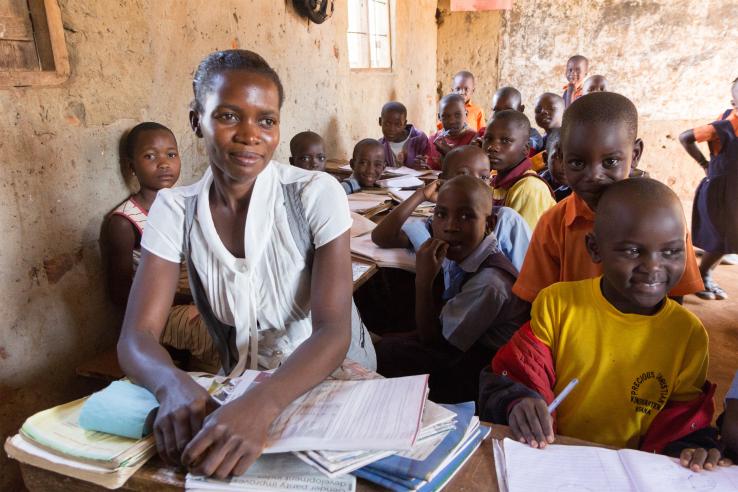Displaying 3691 - 3705 of 8175
Person
Arun Chandrasekhar is a Professor in the Economics Department at Stanford University. His research focuses on development, social networks, and econometrics.
Person
Clément Imbert is a Professor of Economics at Sciences Po Paris (on leave from the University of Warwick). He received a PhD from the Paris School of Economics in 2012 and was a Postdoctoral Research Fellow at the University of Oxford and Nuffield College until 2015.
Person
Sara Heller is an Associate Professor of Economics at the University of Michigan. She studies policy interventions aimed at reducing crime and improving life outcomes of low-income youth.
Person
Matthew Notowidigdo is a Professor of Economics at the University of Chicago Booth School of Business and Scientific Director of J-PAL North America. His research broadly focuses on labor and health economics. He studies the causes and economic consequences of unemployment duration and insurance, as...
Person
Thomas Le Barbanchon is a Professor of Economics at Bocconi University. His research focuses on the impact of policies aimed at reducing unemployment and discrimination in the labor market.
Person
Taha Barwahwala is a Senior Research Associate at J-PAL South Asia where he is exploring the effectiveness of advanced analytics and machine learning methods applied on administrative data to bolster the taxation capacity in the state of Punjab, India.
Person
Melissa S. Kearney is the Neil Moskowitz Professor of Economics at the University of Maryland. Kearney's research focuses on issues of social policy, poverty, and inequality and her work examines the effect of government programs and economic conditions on the behaviors and outcomes of economically...
Person
Initiative Resource
Initiative projects and documents
Evaluation
Researchers evaluated whether providing low-stakes diagnostic tests and feedback to teachers led to improved student learning outcomes in India. They found that teachers in intervention schools exerted more effort when observed in the classroom but students in these schools performed no better on independently-administered tests than students in schools that did not receive the program.
Evaluation
Researchers evaluated the impact of access to a package of free dental services on employment levels for urban residents of Santiago, Chile. Results found that participants with access to these services had better dental health, and that self-esteem and short-term employment increased among women, particularly those who had previously been missing front teeth or with lower levels of self-esteem.
Evaluation
Researchers evaluated whether an alternative teacher incentive scheme, providing rewards based on the performance of all students, could help reduce dropout and improve student math learning. Introducing the pay-for-percentile incentive scheme reduced overall student dropout rates. However, these reductions were driven almost entirely by students at intervention schools with math textbooks. Among schools with math books, the incentive scheme also improved the math achievement for higher performing students.
Person
Alessia Mortara is Policy Manager at J-PAL Africa. She manages J-PAL Africa’s policy team in building partnerships with governments, donors, and civil society organizations to promote the use of evidence in decision-making as well as supporting the scale-up of successful interventions.
Person
Katherine Baicker is Dean and Emmett Dedmon Professor at the University of Chicago Harris School of Public Policy.
Person
Yuen Ho is a Senior Policy Associate at J-PAL Global, where she supports the Political Economy and Governance sector, including the Governance Initiative, and serves as regional liaison to the Africa office.


